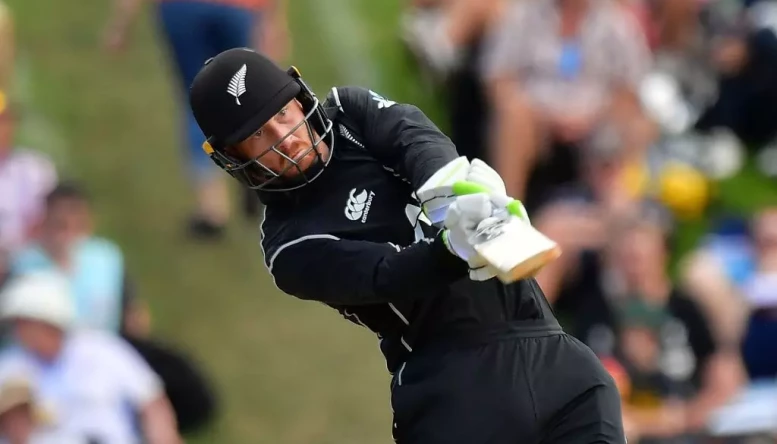Cricket News: What's the impact of Martin Guptill's rejection of a central contract?
Martin Guptill's future in the New Zealand cricket team seemed pretty uncertain, given he didn't play a single game in the 2022 T20 World Cup. And that was before news broke that he would be released from his central contract
 New Zealand Cricket has agreed to release veteran batter Martin Guptill from his central contract
New Zealand Cricket has agreed to release veteran batter Martin Guptill from his central contractIn what has become something of a trend in New Zealand cricket recently, Martin Guptill will no longer be contracted to the board and will pick and choose his availability for the national team.
Trent Boult was the first to go this route and was not seen in New Zealand colors after the World Cup. Colin de Grandhomme chose retirement from international cricket to free himself up for franchise leagues.
And then it was the turn of James Neesham to do the same as Trent Boult and opt out of being a centrally contracted player, choosing instead to focus on franchise leagues.
Yet out of all these players, it is arguably Martin Guptill whose name carries the most weight. It brings us to the most obvious question – Is the future of the sport as we know it in danger?
After all, the four New Zealand players are only the first to go this route. The likes of Chris Gayle, Sunil Narine, and Andre Russell, all from the West Indies, have taken the same path.
They, too, are not centrally contracted by Cricket West Indies and are thus freelance cricketers, turning up to play for the highest bidder.
It is undoubtedly a lucrative career choice, given that a player participating in all these leagues would still have more time off than players going through the never-ending grind of domestic cricket.
And it isn't just the future of the sport that's in danger – it is also the present, as many players are already talking about schedule saturation and the risks of the calendar continuing to expand.
So yes, the sport is facing an existential crisis of sorts. The sport won't cease to exist; it will just remain in a different form.
Yet is it fair to blame the players only? After all, there are two reasons players would choose to become guns for hire – more money and less work.
And while cricket's top three boards can afford hefty central contracts, players from other nations are ripe for the picking as far as franchise owners are concerned.
<blockquote class="twitter-tweet"><p lang="en" dir="ltr">NEWS UPDATE 🚨<br><br>New Zealand Cricket has agreed to release Martin Guptill from his central contract so he can pursue playing opportunities elsewhere <br><br>NZC has made it clear to him that, while he would remain eligible for selection. <br><br>📷: NZC <a href="https://twitter.com/hashtag/Cricket?src=hash&ref_src=twsrc%5Etfw">#Cricket</a> <a href="https://twitter.com/hashtag/MartinGuptill?src=hash&ref_src=twsrc%5Etfw">#MartinGuptill</a> <a href="https://t.co/ssdhOXZtLO">pic.twitter.com/ssdhOXZtLO</a></p>— Niche Sports (@Niche_Sports) <a href="https://twitter.com/Niche_Sports/status/1595399488893771776?ref_src=twsrc%5Etfw">November 23, 2022</a></blockquote> <script async src="https://platform.twitter.com/widgets.js" charset="utf-8"></script>
They would cost less than some of India's established stars would if they were hypothetically on the market and would be available for all games. It's a win-win.
And aside from just the money – which is a massive factor – there's also the fact that the commitments in terms of bilateral series are becoming too much to handle.
Editor's Picks
- 01
Brendon McCullum: England ready to be 'really brave' in team selection for India series
- 02
Diogo Jota inspires Liverpool surge as injuries fail to dampen Premier League lead
- 03
Cameron Norrie ready to go toe-to-toe with the big boys after stellar Australian Open run
- 04
Maxwel Cornet confident of scoring run after opening West Ham account